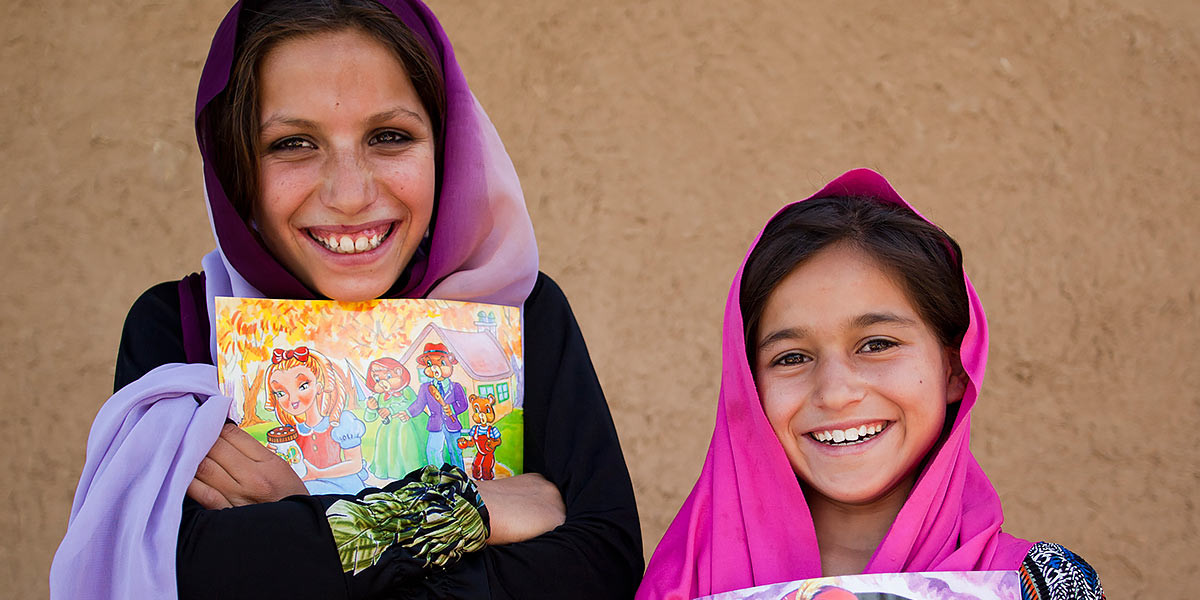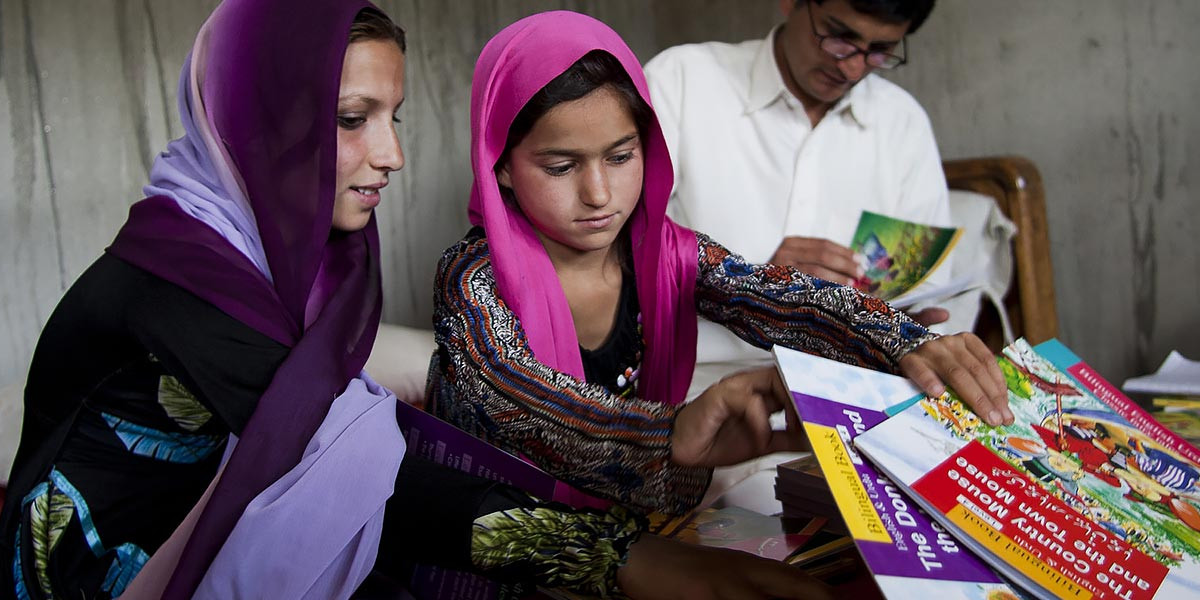Muneeba and Najma started out as reading buddies, but they have become good friends. The girls, aged 12, and 9, live near each other in a village in Khyber Pakhtunkhwa in Pakistan.
They were paired up as part of a programme run by Save the Children to boost literacy in some of the poorest countries in the world. In some parts of rural Pakistan, only one child in every five can read.
Save the Children’s Literacy Boost programme runs in 24 different countries. It aims to boost children’s confidence, extend their vocabulary and create opportunities both inside and outside the classroom. It is estimated that 250 million children between the age of five and 12 cannot read, write or count.
That’s a third of all primary school aged children. For many, that means they will remain trapped in a life of poverty and hardship.
Save the Children wants to change that. For children like Muneeba and Najma, a good education can mean a brighter future.
In Pakistan, the literacy rate is worrying low. Only 58% of primary school aged children can read and write. For girls, the rate drops to 47%.
Since Save the Children started working in Muneeba and Najma’s school, the roll has increased. Fifty children now attend every day. Many families used to take their children out of school at about the age of eight, but now families and communities are beginning to understand how education can transform lives.



